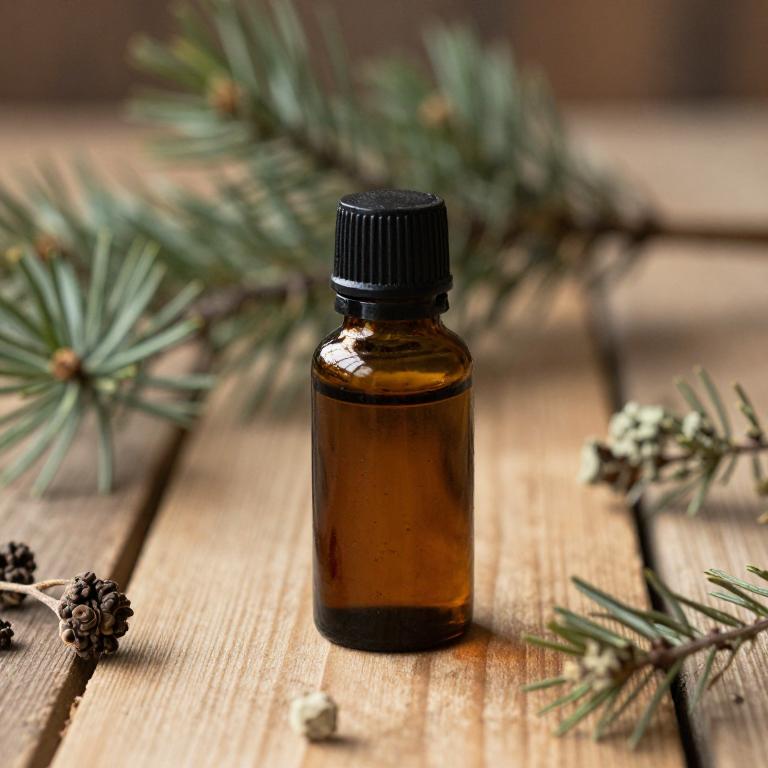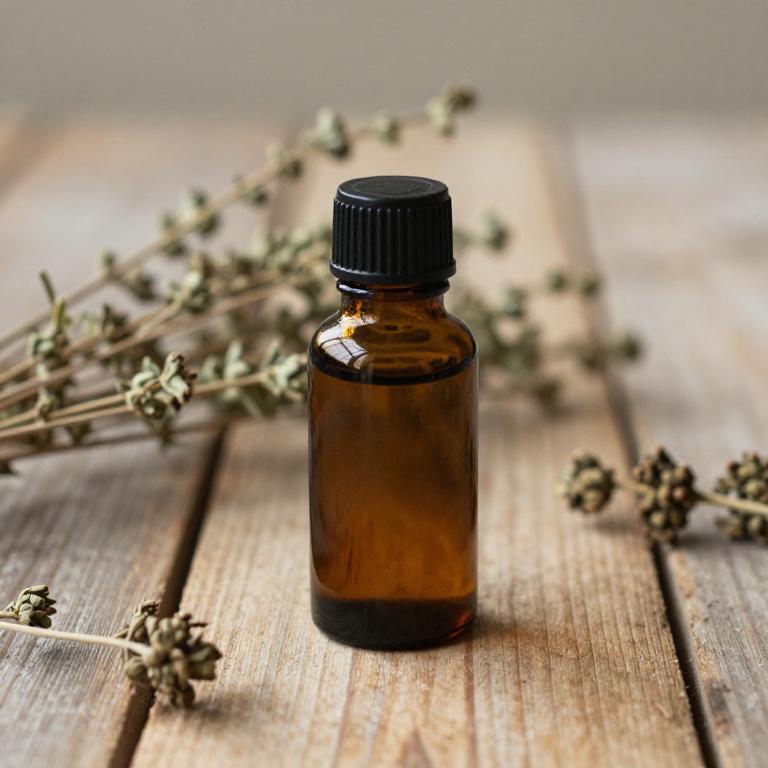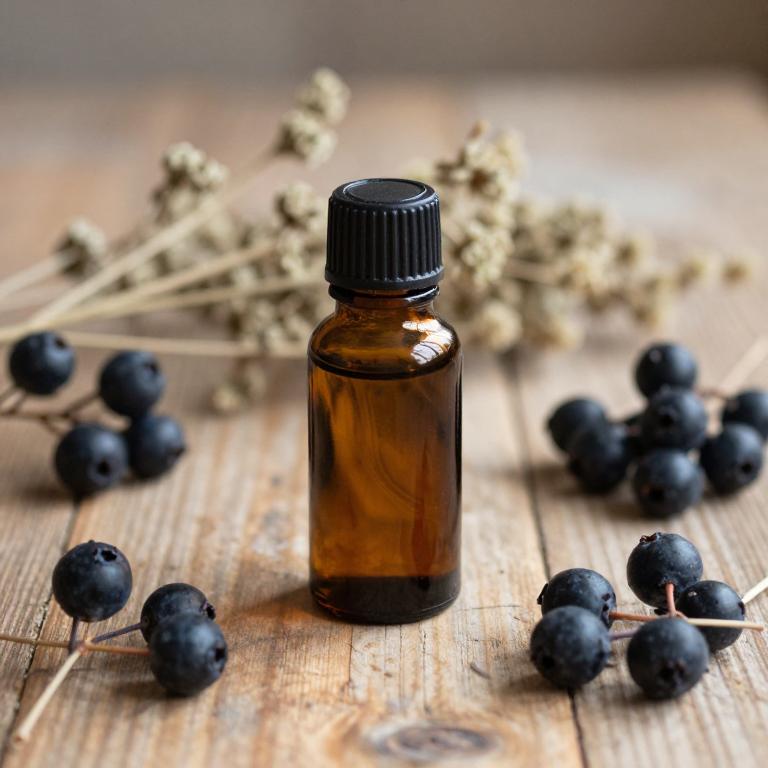10 Best Herbal Essential Oils For Mucus In Throat

Herbal essential oils such as eucalyptus, peppermint, and thyme are commonly used to alleviate symptoms of mucus buildup in the throat due to their antimicrobial and decongestant properties.
These oils can be diffused into the air or applied topically, helping to loosen mucus and reduce inflammation in the respiratory tract. When diluted properly with a carrier oil, they can be safely used for inhalation or as part of a steam treatment to provide relief from congestion. However, it is important to consult a healthcare professional before using essential oils, especially for children, pregnant individuals, or those with existing health conditions.
Overall, herbal essential oils offer a natural alternative for managing throat mucus, though they should complement, not replace, conventional medical treatments.
Table of Contents
- 1. Eucalyptus (Eucalyptus globulus)
- 2. Thyme (Thymus vulgaris)
- 3. Scots pine (Pinus sylvestris)
- 4. Peppermint (Mentha piperita)
- 5. English lavender (Lavandula angustifolia)
- 6. Oregano (Origanum vulgare)
- 7. Ginger (Zingiber officinale)
- 8. Chamomile (Matricaria chamomilla)
- 9. Ceylon cinnamon (Cinnamomum verum)
- 10. Black elderberry (Sambucus nigra)
1. Eucalyptus (Eucalyptus globulus)

Eucalyptus globulus, commonly known as Australian eucalyptus, is a popular source of herbal essential oil renowned for its therapeutic properties, particularly in alleviating mucus-related discomfort in the throat.
The essential oil contains active compounds such as cineole, which have antimicrobial and anti-inflammatory effects that can help reduce congestion and soothe irritated throat tissues. When used in inhalation or diluted in a carrier oil for topical application, it can provide relief from excess mucus and promote clearer breathing. Its refreshing aroma also has a calming effect, making it a valuable natural remedy for respiratory discomfort.
However, it is important to use eucalyptus oil with caution, as it can be toxic if ingested and should always be diluted before use.
2. Thyme (Thymus vulgaris)

Thymus vulgaris, commonly known as thyme, is a popular herb used in aromatherapy for its potent essential oils, which are known to support respiratory health.
The essential oil of thyme contains compounds like thymol and carvacrol, which have antimicrobial and anti-inflammatory properties that can help reduce mucus buildup in the throat. When used in steam inhalation or diffused in a room, thyme essential oil can help clear congestion and soothe irritated throat tissues. It is often blended with other oils like eucalyptus or lavender to enhance its effectiveness for respiratory relief.
However, it is important to dilute thyme essential oil properly before use, as it can be quite strong and may cause skin irritation if applied undiluted.
3. Scots pine (Pinus sylvestris)

Pinus sylvestris, commonly known as Scots pine, produces an essential oil that has been traditionally used for its expectorant properties, particularly in alleviating mucus buildup in the throat.
The oil contains compounds such as alpha-pinene and beta-pinene, which have anti-inflammatory and antimicrobial effects, helping to reduce irritation and infection in the respiratory tract. When used in steam inhalation or diluted in a carrier oil, pine essential oil can soothe sore throats and promote easier breathing by thinning mucus and enhancing its expulsion. It is often recommended as a natural remedy for colds, coughs, and bronchitis due to its ability to support respiratory health.
However, it should be used with caution, as it may cause skin irritation or allergic reactions in some individuals.
4. Peppermint (Mentha piperita)

Mentha piperita, commonly known as peppermint, is a widely used herb in aromatherapy and natural medicine for its refreshing and therapeutic properties.
The essential oil derived from peppermint leaves contains potent compounds like menthol and limonene, which have decongestant and expectorant effects. When used in steam inhalation or diffused into the air, peppermint essential oil can help alleviate mucus buildup in the throat by stimulating the respiratory system and promoting mucus drainage. Its cooling effect also provides a soothing relief for sore throats and can reduce inflammation.
However, it is important to dilute the essential oil properly and consult a healthcare professional before use, especially for individuals with respiratory conditions or allergies.
5. English lavender (Lavandula angustifolia)

Lavandula angustifolia, commonly known as English lavender, is a widely used herb in aromatherapy and traditional medicine.
Its essential oil is valued for its calming properties and potential anti-inflammatory effects, which may help alleviate throat discomfort. When used in steam inhalation or as a diffused aroma, lavender essential oil may help reduce mucus buildup and soothe irritated throat tissues. The oil contains compounds like linalool and linalyl acetate, which are believed to have mucolytic and antimicrobial properties.
While it is generally considered safe for topical use, it should be diluted properly and avoided during pregnancy or by individuals with certain allergies.
6. Oregano (Origanum vulgare)

Oreganum vulgare, commonly known as oregano, is a herb widely used in traditional medicine for its therapeutic properties, including its potential to help with mucus in the throat.
The essential oil derived from oregano contains potent compounds like carvacrol and thymol, which exhibit antimicrobial and anti-inflammatory effects. These properties may help reduce throat irritation and loosen mucus, making it easier to expel. When used in steam inhalation or diluted in a carrier oil, oregano essential oil can provide relief for respiratory discomfort.
However, it is important to use this oil with caution, as it is highly concentrated and may cause irritation if not properly diluted.
7. Ginger (Zingiber officinale)

Zingiber officinale, commonly known as ginger, contains essential oils that have been traditionally used to alleviate symptoms related to mucus buildup in the throat.
These essential oils, including compounds like zingiberene and gingerol, possess anti-inflammatory and antimicrobial properties that can help reduce throat irritation and loosen mucus. When used in steam inhalation or diluted in a carrier oil, ginger essential oil may provide relief by promoting expectoration and reducing congestion. Its warming effect can also soothe sore throats and improve respiratory comfort.
However, it is important to consult a healthcare professional before using essential oils, especially for those with allergies or underlying health conditions.
8. Chamomile (Matricaria chamomilla)

Matricaria chamomilla, commonly known as chamomile, is a popular herb used in the production of essential oils that are often employed for their soothing and anti-inflammatory properties.
The essential oil derived from chamomile flowers contains compounds such as bisabolol and chamazulene, which are known to have mucolytic and anti-inflammatory effects. When used in steam inhalations or diluted in a carrier oil, chamomile essential oil may help to reduce throat irritation and loosen mucus, providing relief for respiratory discomfort. It is often recommended for individuals suffering from colds, sore throats, or mild respiratory infections.
However, it is important to use the oil safely, as it may cause allergic reactions in some individuals, and it should be diluted properly before application.
9. Ceylon cinnamon (Cinnamomum verum)

Cinnamomum verum, commonly known as true cinnamon, contains essential oils that have been traditionally used for their aromatic and therapeutic properties.
These oils, derived from the bark of the cinnamon tree, contain compounds like cinnamaldehyde and eugenol, which possess antimicrobial and anti-inflammatory effects. When used in steam inhalation or as a diffused aroma, cinnamon essential oil may help soothe irritation in the throat and reduce mucus buildup. Its warming properties can also help ease congestion and promote respiratory comfort.
However, it is important to dilute the oil properly before use and consult with a healthcare professional, especially for individuals with sensitive respiratory systems or allergies.
10. Black elderberry (Sambucus nigra)

Sambucus nigra, commonly known as European elderberry, is traditionally used in herbal medicine for its potential respiratory benefits.
While it is more widely recognized for its fruit and berries, Sambucus nigra essential oil has been explored for its properties that may help alleviate mucus buildup in the throat. The oil contains compounds like flavonoids and phenolic acids, which are believed to have antimicrobial and anti-inflammatory effects. These properties may help reduce throat irritation and loosen mucus, making it easier to expel.
However, it is important to note that while some studies suggest potential benefits, more research is needed to fully understand its efficacy and safety for this specific use.